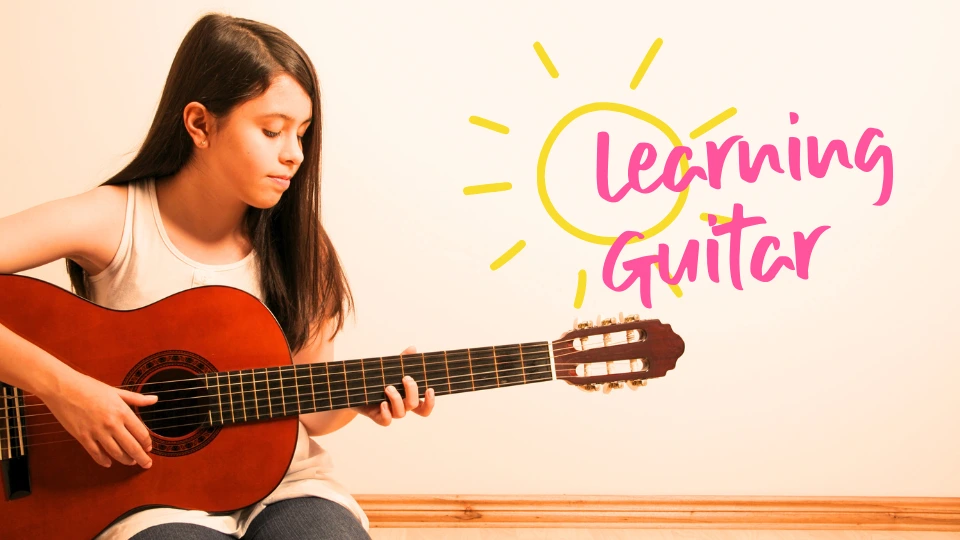Strumming Success: How Learning Guitar Enhances Cognitive Abilities and Emotional Well-being
Playing the guitar is a rewarding hobby that can provide both physical and mental benefits. Learning to play the guitar is not just about producing beautiful melodies; it offers numerous cognitive and emotional benefits that contribute to personal growth and well-being. In this article, we will explore how the process of learning and playing the guitar can enhance cognitive abilities and positively impact emotional well-being.
Cognitive Benefits of Learning Guitar
Playing the guitar boosts a number of cognitive skills, including:
- Attention. You need to be able to focus on the task at hand in order to learn new chords and finger patterns, and practicing guitar makes you more and more attentive.
- Memory. You need to be able to remember the names of chords and finger patterns, as well as the order in which they are played. The cycle of reading, playing, remembering makes your memory stronger every passing day, and that is helpful in your overall life.
- Problem-solving. You need to figure out how to play new songs and improvise solos with continuous ear-tuning, i.e. find out solutions on the fretboard to play the songs you listen on ad-hoc basis.
- Spatial reasoning. You practice chords and finger positions as you go deeper, and improve to visualize the fretboard in order to play chords and finger patterns correctly.
Research has shown that playing a musical instrument can improve cognitive abilities in a number of ways. For example, one study found that playing the guitar can improve working memory, which is the ability to hold information in mind and manipulate it. Another study found that playing the guitar can improve executive function, which is the ability to plan, organize, and execute tasks.
Emotional Benefits of Learning Guitar
Learning guitar can also have a number of positive effects on your emotional well-being. For example, playing the guitar can:
- Reduce stress. Playing music has been shown to reduce stress levels by activating the parasympathetic nervous system, which is responsible for relaxation.
- Boost confidence. Learning a new skill can boost your self-confidence and sense of accomplishment, by making you gain more attention in your peer-group as well as public in general.
- Improve mood. Playing music can release endorphins, which are hormones that have mood-boosting effects. So next time when you are having a not-so-normal day, just run through the fretboard and see the magic.
- Provide a sense of purpose. Having a hobby that you enjoy can give you a sense of purpose and meaning in life, something you can stick with for life, improve upon, enjoy, earn, coach, recognize yourself professionaly and what not.
If you are looking for a hobby that can improve your cognitive abilities and emotional well-being, learning guitar is a great option. There are many different resources available to help you get started, so you can find a way to learn that fits your needs and interests.
Some additional benefits of learning guitar
- It can help you connect with others. Playing guitar can be a great way to meet new people and make friends. There are many opportunities to play music with others, such as in bands, ensembles, or jam sessions. Also, joining a professional certification program gives you access to a larger community of learners.
- It can help you express yourself. Music is a powerful form of self-expression. Playing guitar can give you a way to express your emotions and share your creativity with others. You can create your music with the
- It can be a fun and rewarding hobby. Learning guitar can be a lot of fun. It is a challenging but rewarding hobby that can provide you with years of enjoyment.
If you are interested in learning guitar, there are many different resources available to help you get started. You can find books, DVDs, online courses, and even in-person lessons. The best way to learn is to find a method that works for you and stick with it. With a little practice, you will be strumming your favorite songs in no time.
Tips for learning guitar
Here are a few tips that you can use to start learning guitar and build upon stronger.
- Start with the basics. Before you start learning songs, it is important to learn the basics of guitar playing. This includes learning how to hold the guitar, how to read music, and how to play basic chords, understanding the notes and so on. Jumping on to learning songs is not a good idea to start with.
- Practice regularly. The more you practice, the better you will become at playing guitar. Try to practice for at least 30 minutes each day, 5 days a week. The more you practice, the more you enjoy and learn.
- Find a mentor. If you know someone who plays guitar, ask them to teach you. Having a mentor can help you learn the ropes and avoid general mistakes that otherwise go unnoticed.
- Have fun. Learning guitar should be enjoyable. If you are not having fun, you are less likely to stick with it. So relax, have fun, and enjoy the process of learning to play guitar.
Explore our exclusive 1:1 guitar classes with certified and professional coaches. Whatsmore, we can prepare you to get a professional certification with Trinity, ABRSM or any other school of your choice.











